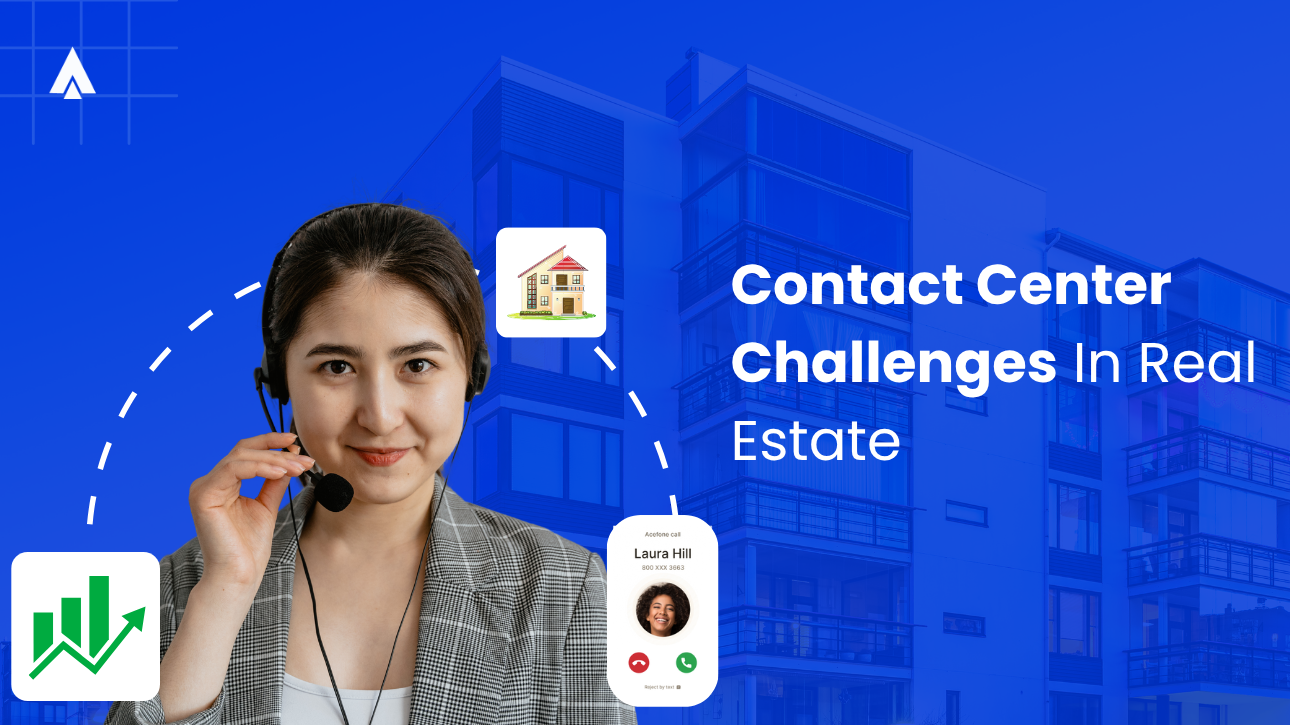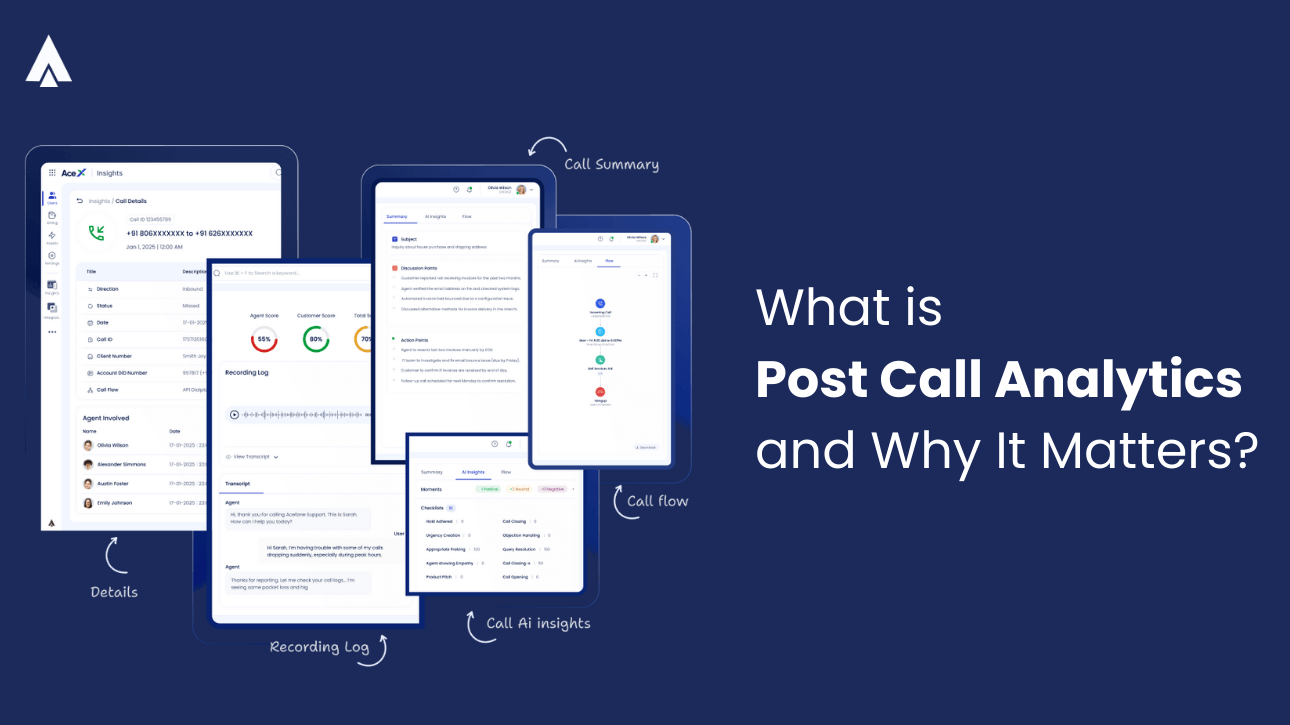While your competitors sleep, a potential buyer is browsing luxury apartments online at 2 AM local time. That same buyer will likely contact five different agents before making a decision. The agent who responds first and most effectively wins a deal that could be worth hundreds of thousands of dollars.
Unlike retail or tech companies, real estate contact center handle emotionally charged, high-value transactions where timing literally determines success. A property inquiry isn’t just another customer service ticket. It’s a potential life-changing decision that requires specialized handling, deep market knowledge, and round-the-clock availability.
The stakes couldn’t be higher. The global real estate market was valued at approximately USD 4.12 trillion in 2024 and is projected to reach USD 7.03 trillion by 2034. If you want to dominate these massive markets, you need to master lead management through real estate contact centers. But building these frameworks comes with its own set of challenges.
Let’s understand the key challenges you might face while setting up a high-performing real estate contact center, along with their solutions.
Why Real Estate Contact Centers Are Different from Traditional Customer Service
Real estate contact center operate in a unique ecosystem that demands specialized solutions. Unlike traditional customer service centers that handle routine inquiries, real estate call centers must navigate complex, high-stakes transactions involving multiple stakeholders.
Every call represents a potential six-figure transaction, requiring agents with deep market knowledge rather than scripted responses.
Key differentiators include:
- Property inquiries arrive 24/7, especially from international buyers
- High-value transactions require senior agent involvement
- Multiple stakeholders need constant coordination
- Seasonal demand creates unpredictable volume patterns
These unique demands give rise to challenges that traditional call centers rarely face. Here are a few of them.
1. Lead Response Time Crisis
Studies show that businesses who respond to leads in five minutes or less are 100x more likely to connect and convert opportunities. More critically, responding to a lead within the first five minutes makes it 21 times more likely to turn into a sales opportunity compared to waiting 30 minutes.
Most real estate firms can take up to 3 days to respond to leads, especially if they’re from the website. This is devastating because it is a waste of precious time. A potential buyer might view a property listing online at 9 PM and submit an inquiry. By the time your agent responds, that buyer has already contacted others and scheduled viewings elsewhere. It’s like showing up to a race after everyone else has already crossed the finish line.
The solution:
Close the gap between inquiry and response with tools built for speed and precision.
Intelligent call routing, automated callbacks, and omnichannel access can dramatically improve how fast leads are handled. With the right call center software, real estate teams can route urgent calls to available agents in any time zone. They can send automated SMS replies within minutes. High-value leads are escalated to senior agents instantly. This helps simplify lead management and make it more efficient.
2. High-Value Transaction Anxiety Management
Property purchases often require a buyer’s life savings. So naturally, every purchase creates intense anxiety. This sometimes translates into frequent escalations and demands for constant updates.
The solution:
Setting up dedicated transaction hotlines with a smart IVR system can immediately streamline the customer experience. This way, callers can get routed to the right department or specialist without long wait times or unnecessary transfers.
When these hotlines are further integrated with your CRM, the benefits multiply. Agents get instant access to each caller’s transaction history and context. This allows them to deliver accurate updates and engage in proactive conversations. Instead of gathering basic details, they can focus on resolving issues and building stronger relationships. With CRM integration, every call starts with clarity.
3. Multi-Stakeholder Coordination Complexity
Real estate transactions involve buyers, sellers, agents, mortgage brokers, lawyers, inspectors, and title companies. All require constant coordination and updates.
In the US, this complexity is amplified by varying state regulations. For instance, the Real Estate Settlement Procedures Act (RESPA) governs how closing costs are disclosed, while Truth in Lending Act (TILA) regulates mortgage disclosures. Title and escrow practices, zoning laws, and licensing rules also vary from state to state, making seamless communication essential.
The solution:
UCaaS solutions like Acefone bring all your communication tools into one place. This helps buyers, sellers, agents, and legal teams stay connected and informed throughout the transaction. With multi-party conference calling, call recording, and automated updates, everyone gets the right information at the right time.
Other than that, real-time call monitoring and analytics give managers a clear view of progress. CRM integration ensures every conversation starts with full context. This way, your team works in sync, your clients stay informed, and your transactions move smoothly.
4. Seasonal Volume Fluctuations
Real estate businesses often see a surge in customer interactions during spring and summer. In contrast, winter brings a noticeable dip in activity. These shifts make staffing unpredictable and inefficient. Overstaffing during slow months hurts budgets, while understaffing during peak season risks losing leads and frustrated clients.
Cut waste fast: Track Call Center Shrinkage to optimize staffing in your real estate call center.
The solution:
With cloud-based real estate call center solutions, teams can scale quickly without changing infrastructure. You can add or reduce users as needed, paying only for what you use. This flexibility helps teams handle seasonal demand without long-term commitments or hiring challenges.
5. International Buyer Support
Real estate agents serving global clients often struggle with time zones, language gaps, and expensive international communication. Delays in responding to queries or misunderstandings due to language can lead to lost deals.
The solution:
With 24/7 global call routing, calls can be directed to agents available in different regions, no matter the time. This setup helps maintain constant availability without overloading one team. Other than that, multilingual IVR ensures that international callers are greeted in their language and routed accordingly. Paired with hosted international numbers, the experience feels local even across borders.
6. Property Viewing Coordination
Coordinating property viewings is one of the most chaotic parts of real estate. Agents deal with frequent no-shows, reschedules, and miscommunication. Every missed appointment is a lost sales opportunity, especially in a low-inventory market.
The solution:
Get a real estate call center solution equipped with automated scheduling features. It will help your team confirm viewings the moment a prospect selects a time slot. The systems can also sync with calendars to avoid clashes. After each visit, you can also schedule automated follow-ups to gather feedback or move the deal forward.
7. Regulatory Compliance Communication
Real estate communication is heavily regulated. From data protection laws to region-specific documentation requirements, one misstep can lead to fines or legal trouble. For instance, the Telephone Consumer Protection Act (TCPA) restricts how real estate companies can use phone calls, SMS, and prerecorded messages for marketing. If an agent contacts a lead without proper consent, especially via automated systems, it can result in fines of up to $1,500 per violation.
The solution:
If your calling solution offers recording functionality along with customizable retention periods, you can ensure conversations are archived as required. This provides transparency during audits or disputes.
Additionally, simplified logging of interactions with time stamps creates a clear trail for every transaction. This reduces manual effort and strengthens audit readiness for better compliance.
8. Agent Expertise Requirements
Real estate contact center handle more than basic customer queries. Agents must explain financing options, legal processes, and property trends. Traditional support training often leaves them unprepared.
The solution:
Integrating a cloud-based knowledge base gives agents instant access to resources. This can include market data, legal FAQs, or financing explainers. For complex queries, intelligent call routing directs the client to a senior expert. This avoids escalation delays and builds client confidence.
9. CRM Integration Complexity
During calls, agents need access to property listings, client preferences, and transaction histories. Without integration, they waste time switching tools or asking clients to repeat information.
The solution:
With CRM integrations, agents get screen pop-ups showing all relevant client details as soon as the call connects. This saves time and personalizes the conversation.
Call activity is auto logged into the CRM, including notes and next steps. It ensures consistent follow-up and complete records without manual input.
10. Performance Measurement Uniqueness
Standard contact center metrics like call volume and average handle time don’t reflect real estate success factors. This is because they don’t capture what truly drives business success—relationship-building, trust, and deal progression.
The solution:
An advanced real estate call center gives you powerful, real estate-ready reporting tools to track what really matters. You get visibility into the performance of your teams, your campaigns, and your client interactions, all in one place. Custom dashboards show how each lead source performs and how your communication tools are driving results.
You can easily track important metrics like lead conversion, deal value, and the time it takes to close a sale. These insights help you make smarter decisions and improve service at every stage of the transaction. Client satisfaction also becomes easier to measure, so you can turn good experiences into repeat business.
Curious to know about call center, then visit us at Contact Center Software.
Transform Your Real Estate Contact Center with Acefone
The real estate industry’s unique communication challenges require specialized solutions that go beyond traditional contact center technology. Real estate call centers need platforms built specifically for high-value, relationship-driven transactions.
Acefone’s UCaaS platform addresses each of these challenges with industry-specific features designed for real estate success. Our solutions integrate seamlessly with existing CRMs while providing the scalability and reliability that growing real estate businesses demand.














